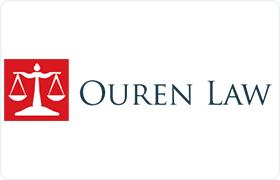Toppenish Divorce & Family Law Lawyer, Washington
Sponsored Law Firm
-
 x
x

Click For More Info:
-
Ouren Law
4101 South Union Street Kennewick, WA 99337» view mapDivorce & Family Law Dedicated. Straightforward. Tough.
With more than a decade of experience, Attorney Ouren has helped many clients achieve successful results in their family law and criminal law matters.
800-971-6601
Favian Valencia
Insurance, Employment Discrimination, Civil Rights, Family Law
Status: In Good Standing
Catherine R. Lighty
Dispute Resolution, Lawsuit & Dispute, Family Law, Divorce & Family Law
Status: In Good Standing Licensed: 31 Years
Brett Nelson Goodman
Contract, Collection, Civil Rights, Family Law
Status: In Good Standing Licensed: 9 Years
Brooke Rosborough Barnes
Traffic, Family Law, Child Custody, Criminal
Status: In Good Standing Licensed: 12 Years
David Lee Trick
Dispute Resolution, Lawsuit & Dispute, Family Law, Divorce & Family Law
Status: In Good Standing Licensed: 34 Years
David Paul Hazel
Family Law, Divorce, Custody & Visitation, Divorce & Family Law
Status: In Good Standing
 Kimberly Ouren Kennewick, WA
Kimberly Ouren Kennewick, WA Practice AreasExpertise
Practice AreasExpertise
